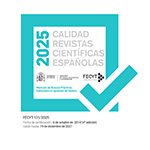Lorenzo Natali and the first “tangible” steps towards the EEC Iberian Enlargement
Abstract
This article claims that the EEC turned the challenge of Iberian enlargement into an opportunity to relaunch the European project. The text focuses on illuminating the under researched role of the European Commission during the presidency of the British Roy Jenkins (1977-1981). The common thread of the story is made up of the analysis of the work carried out by the commissioner for the Enlargement, the Italian Lorenzo Natali. Far from understanding the accession of Spain and Portugal as a problem for the economic cohesion of the EEC, as some member states raised at the time, Natali saw in it a stimulus to overcome the break following the first enlargement. The text shows how, following Natali’s strategy, the Commission linked the progress of the Iberian agenda to the resolution of the great challenges of the community agenda: the establishment of a European monetary system, the completion of the Single Market, the reinforcement of the international role of the EEC and above all a political and institutional reform able to guarantee the Community to work with twelve member-states.
Downloads
Article download
License
In order to support the global exchange of knowledge, the journal Cuadernos de Historia Contemporánea is allowing unrestricted access to its content as from its publication in this electronic edition, and as such it is an open-access journal. The originals published in this journal are the property of the Complutense University of Madrid and any reproduction thereof in full or in part must cite the source. All content is distributed under a Creative Commons Attribution 4.0 use and distribution licence (CC BY 4.0). This circumstance must be expressly stated in these terms where necessary. You can view the summary and the complete legal text of the licence.











